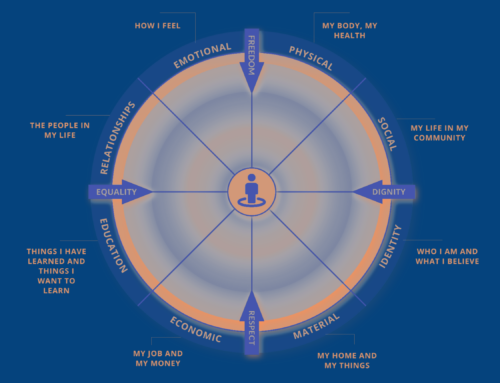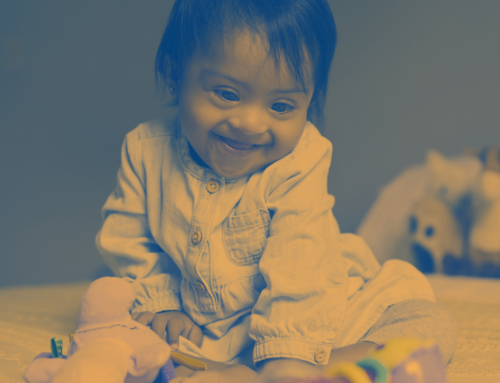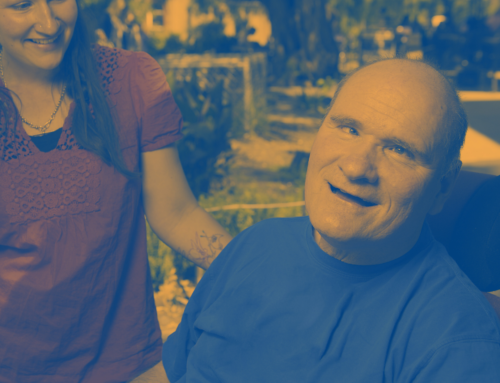A Commitment to Lifestyle-Centred Decision Making
At Lifestyle Centred Services, we are dedicated to empowering individuals with disabilities to make informed decisions about their lives and support services. Our approach is grounded in the fundamental principles of human rights and supported decision-making, ensuring that each person we serve has the opportunity to exercise control over their own choices, maximise their independence, and live with dignity.
Upholding Human Rights and Informed Decision-Making
Lifestyle Centred Services aims to champion the human rights of people with disabilities, rooted in both national and international obligations, particularly Article 12 of the United Nations Convention on the Rights of Persons with Disabilities. This article calls for the right of persons with disabilities to exercise legal capacity on an equal basis with others, and it serves as the driving force behind supported decision-making.
We believe that by promoting informed choices, we can help our clients achieve greater autonomy and independence in all aspects of their lives. By prioritising quality decision-making, we ensure that our services contribute to long-term positive outcomes, fostering client well-being and enhancing staff effectiveness.
Who does this apply to?
This is relevant to all Lifestyle Centred Services staff and clients, ensuring that we uphold the rights and dignity of every individual who accesses our services. It is designed to guide how we interact with clients in a way that respects their decision-making abilities and supports them in their choices.
Assumptions and Approaches to Decision-Making
We operate on the assumption that all clients have the capacity to make decisions, unless there is evidence to the contrary. However, we acknowledge that decision-making capacity can vary depending on the situation and the specific decision at hand.
Key principles include:
- Dignity of Risk: We recognise that clients have the right to take risks and make decisions, even if those decisions involve some degree of uncertainty or potential harm. This respect for autonomy is at the heart of our practice.
- Support for Decision-Making: When a client’s capacity to make a particular decision is in question, we provide structured support to assess their capacity and help them navigate their choices.
- Client-Centered Decision-Making: We always involve the client in decision-making processes and consult with family, carers, and advocates where necessary. No decision will be made on behalf of a client without their consent, ensuring that their wishes, preferences, and rights are at the forefront of all interactions.
Key Definitions
To clarify the key concepts, here are the definitions of several important terms:
- Decision-Making: The process of making choices based on personal values, preferences, and beliefs.
- Informed Choice: A decision made with full awareness of available options, including the benefits, risks, and potential outcomes.
- Capacity: A person’s ability to make a specific decision, which may vary depending on the context.
- Dignity of Risk: The principle that people should be allowed to take risks as part of living their lives fully.
- Advocate: A person who represents another’s interests and helps ensure their rights are upheld.
- Autonomy: The ability to make one’s own decisions and pursue personal goals, even if the choices are not universally understood or agreed upon.
Supporting Clients in Their Decision-Making
There are clear procedures to ensure clients are fully supported in their decision-making process:
The Right to an Advocate
From their first interaction with Lifestyle Centred Services, clients are informed that they have the right to choose an advocate to assist with their decision-making. This advocate can be anyone the client trusts, including independent advocates. The advocate is welcome at any time during the service process.
Supporting Informed Decision-Making
When developing a service agreement or engaging in any ongoing support interactions, staff must:
- Assume the client can make decisions, and not base assessments of capacity on appearances alone.
- Provide relevant information about available options, risks, and benefits, ensuring clients and their advocates are well-informed.
- Consult with clients to help them understand their options and facilitate informed choices.
- Offer sufficient time for the client to absorb the information and make decisions, and provide materials in an Easy Read format for clarity.
- Review the client’s service plan to align supports with their needs as outlined in their NDIS plan.
In cases where the client’s decision may pose a potential risk to their health or safety, we conduct a risk assessment and collaborate with the client, family, and advocates to create a risk management plan. All discussions and decisions are documented in the client’s care plan.
Upholding Autonomy
We respect each client’s autonomy, which means their right to make decisions about their own life, regardless of others’ opinions or societal expectations. This includes respecting their personal choices, relationships, and expressions of intimacy, as long as these actions remain within lawful boundaries.
Providing Time for Decision-Making
We understand that some decisions may require careful thought. Clients are given the necessary time to consider their options, seek advice from family or support networks, and reflect on the consequences of their decisions. At no point should clients feel rushed or pressured into making decisions before they are ready.
Proper Documentation
To ensure transparency and accountability, all decisions and relevant discussions with clients are thoroughly documented. Staff must record all provided options and the client’s decision in their personal file, creating a clear trail of decision-making processes.
Related Documents
This information is supported by various documents and resources, including:
- Service Agreements and Care Plans
- Risk Management Plans
- Transition or Exit Procedures
- Easy Read Rights Documents
- Access to Supports Policy
These documents help ensure that clients receive consistent and coordinated support, in line with their rights and preferences.
References
Our commitment to supporting choice and control is in alignment with NDIS Practice Standards and Quality Indicators (2021) and international frameworks such as the United Nations Convention on the Rights of Persons with Disabilities.
Conclusion
Lifestyle Centred Services is dedicated to empowering people with disabilities by respecting their right to make decisions about their own lives. Through informed choice, supported decision-making, and a strong commitment to autonomy and dignity, we ensure that our clients receive the care and support they deserve, while maintaining full control over their life decisions. We are proud to uphold the principles of choice, control, and independence in every aspect of our work.
Diversity Inclusivity:
Embracing Diversity and Inclusivity: A Commitment to Person-Centred Care in NDIS Support
At Lifestyle Centred Services we believe that every individual—regardless of their background, abilities, or life experiences—deserves to be treated with respect, dignity, and equality. As an NDIS registered provider, we are committed to embracing diversity and inclusivity in everything we do. We create an environment where all people with disabilities can access the support they need to live fulfilling, independent lives.
Why Diversity and Inclusivity Matter in Disability Support
Diversity and inclusivity aren’t just buzzwords; they are fundamental principles that guide the way we approach our work with clients. In the context of the National Disability Insurance Scheme (NDIS), inclusivity means ensuring that people with disabilities are not only supported but celebrated for their unique qualities and life experiences.
For us, inclusivity means recognising and respecting:
- Cultural diversity – Understanding and valuing different cultural, linguistic, and religious backgrounds.
- Gender and sexual diversity – Supporting people of all gender identities and sexual orientations.
- Cognitive and physical differences – Acknowledging the spectrum of disability types and providing tailored, person-centred care.
- Age, life experience, and personal goals – Appreciating the life journey of each person, respecting their history, and supporting their future aspirations.
Diversity strengthens our communities, enriches our workplaces, and enhances the quality of care we provide to our clients. When we approach care with inclusivity in mind, we help break down barriers and promote a sense of belonging for everyone.
Person-Centred Care: Putting Clients at the Heart of What We Do
One of the core principles of the NDIS is person-centred care—a philosophy that emphasises the importance of tailoring support to meet the individual needs, preferences, and goals of each client. This approach is intrinsically linked to our commitment to inclusivity and diversity. Here’s how we make person-centred care a reality:
- Respecting Unique Identities: Each person has their own identity, culture, background, and experiences. We take the time to understand the diverse needs and preferences of our clients, and we work collaboratively to develop a tailored care plan that aligns with their personal goals. Whether it’s providing culturally appropriate services, respecting personal traditions, or supporting someone in a way that honours their gender identity, we ensure that the client’s individuality is always respected.
- Creating Accessible Environments: Inclusivity goes beyond words—it extends to the physical and social environment as well. Our spaces are designed to be accessible and welcoming to all, with adjustments made to accommodate the different physical, sensory, and communication needs of clients. This may involve offering Easy Read materials, using assistive technologies, or ensuring staff are trained in supporting clients with various communication styles.
- Celebrating Cultural Diversity: We recognise the importance of understanding and honouring different cultural perspectives. We support clients by providing culturally sensitive care, which includes understanding cultural customs, dietary preferences, communication styles, and traditional practices. We also employ staff from diverse backgrounds, allowing us to offer a broad range of perspectives and approaches in support provision.
Empowering Clients Through Choice and Control
A core element of the NDIS is choice and control—the right for individuals with disabilities to make their own decisions about the supports and services they receive. As an NDIS provider, we empower our clients by ensuring they have the information and support they need to make informed decisions.
- Personalised Care Plans: Our clients work alongside their families, carers, and support team to create a plan that reflects their unique needs, preferences, and goals. This collaborative approach ensures that clients have control over their care and that their individual needs are at the forefront of every decision.
- Flexibility and Adaptability: We understand that needs can change over time, so we offer flexibility in the services we provide. Whether it’s adapting to new interests, evolving personal goals, or responding to changes in a person’s health, we are committed to being responsive and adjusting our services to ensure that clients receive the best possible support at every stage of their journey.
- Accessible Information: We provide all relevant information in formats that are easy to understand and accessible to everyone. This includes offering Easy Read documents, interpreter services, and culturally relevant resources to ensure that all clients, regardless of background or ability, can engage with their support services fully.
Training and Awareness: Fostering an Inclusive Workforce
Diversity and inclusivity are not just values we uphold as an organisation—they are also embedded in the way we train and develop our staff. All of our employees receive ongoing training on cultural competency, disability awareness, and person-centred care practices. We believe in fostering an environment where our team members:
- Understand the Diversity of Clients: Staff are trained to understand and respect the diverse needs of clients, including their cultural backgrounds, life experiences, and personal goals.
- Promote Respect and Dignity: Staff are encouraged to create a safe, respectful environment where clients feel valued, heard, and empowered to make choices about their care and support.
- Create Inclusive Communities: We provide training on how to create inclusive spaces that welcome and celebrate diversity. This includes understanding unconscious biases, using inclusive language, and being open to learning from others.
Working Together: Collaboration and Advocacy
At Lifestyle Centred Services, we recognise that diversity and inclusivity go beyond our interactions with clients—we are also committed to working closely with other community organisations, advocacy groups, and stakeholders to ensure that the voices of people with disabilities are heard and their rights are protected.
- Supporting Family and Carers: We acknowledge the critical role that families and carers play in the lives of people with disabilities. We work closely with families to ensure that the support provided aligns with their values, culture, and priorities. This collaboration fosters trust and enhances the quality of care that clients receive.
- Advocating for Rights: We support our clients in advocating for their rights, whether it’s access to services, employment opportunities, or social participation. We provide clients with the tools and resources they need to make informed decisions and navigate the NDIS system confidently.
Conclusion: A Future of Inclusivity and Respect
At Lifestyle Centred Services, we are proud to be an NDIS registered provider that is committed to embracing diversity and fostering inclusivity. By respecting and celebrating the uniqueness of each individual, we can create a supportive, empowering, and inclusive environment where everyone has the opportunity to thrive.
We believe that when we prioritise diversity and inclusivity, we not only improve the quality of care for our clients but also contribute to building a more equitable and just society for all. Together, we can create a future where everyone, regardless of their background or ability, is valued, respected, and supported to achieve their full potential.





